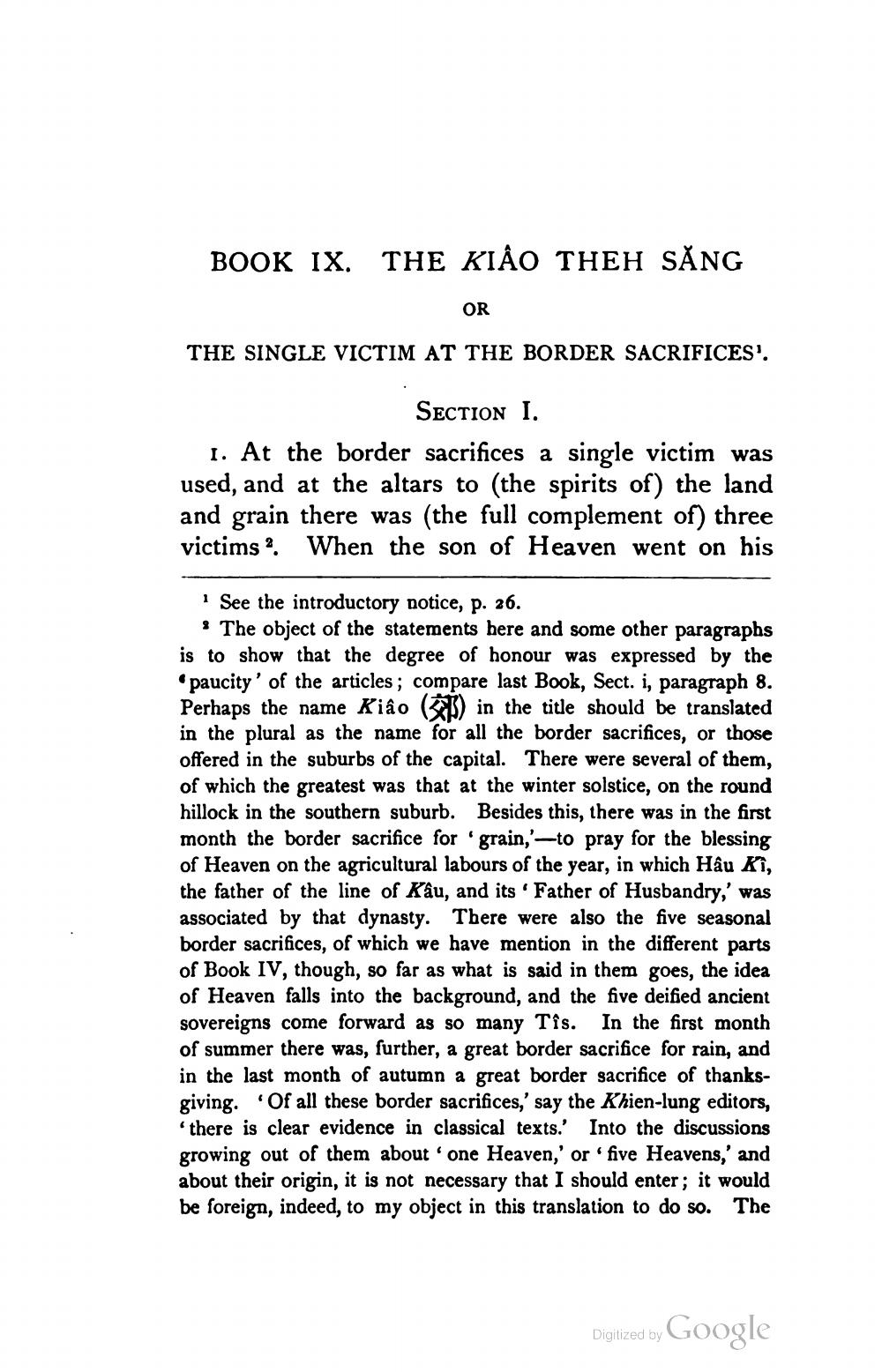________________
BOOK IX. THE KIAO THEH SÅNG
OR
THE SINGLE VICTIM AT THE BORDER SACRIFICES'.
SECTION I.
1. At the border sacrifices a single victim was used, and at the altars to (the spirits of) the land and grain there was (the full complement of) three victims. When the son of Heaven went on his
See the introductory notice, p. 26.
The object of the statements here and some other paragraphs is to show that the degree of honour was expressed by the 'paucity' of the articles; compare last Book, Sect. i, paragraph 8. Perhaps the name Kiâo () in the title should be translated in the plural as the name for all the border sacrifices, or those offered in the suburbs of the capital. There were several of them, of which the greatest was that at the winter solstice, on the round hillock in the southern suburb. Besides this, there was in the first month the border sacrifice for 'grain,'-to pray for the blessing of Heaven on the agricultural labours of the year, in which Hâu Kî, the father of the line of Kâu, and its 'Father of Husbandry,' was associated by that dynasty. There were also the five seasonal border sacrifices, of which we have mention in the different parts of Book IV, though, so far as what is said in them goes, the idea of Heaven falls into the background, and the five deified ancient sovereigns come forward as so many Tîs. In the first month of summer there was, further, a great border sacrifice for rain, and in the last month of autumn a great border sacrifice of thanksgiving. Of all these border sacrifices,' say the Khien-lung editors, 'there is clear evidence in classical texts.' Into the discussions growing out of them about 'one Heaven,' or 'five Heavens,' and about their origin, it is not necessary that I should enter; it would be foreign, indeed, to my object in this translation to do so. The
Digitized by
Google




